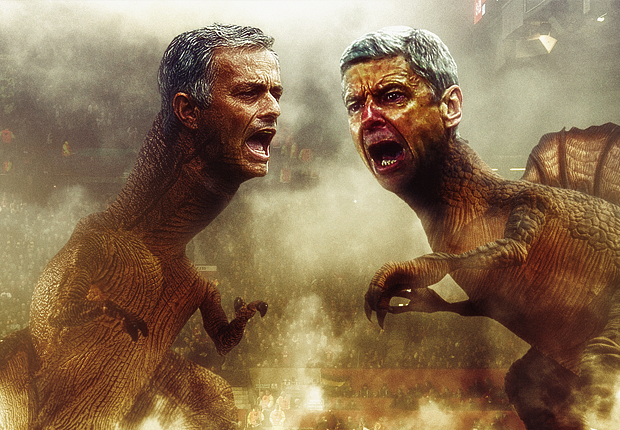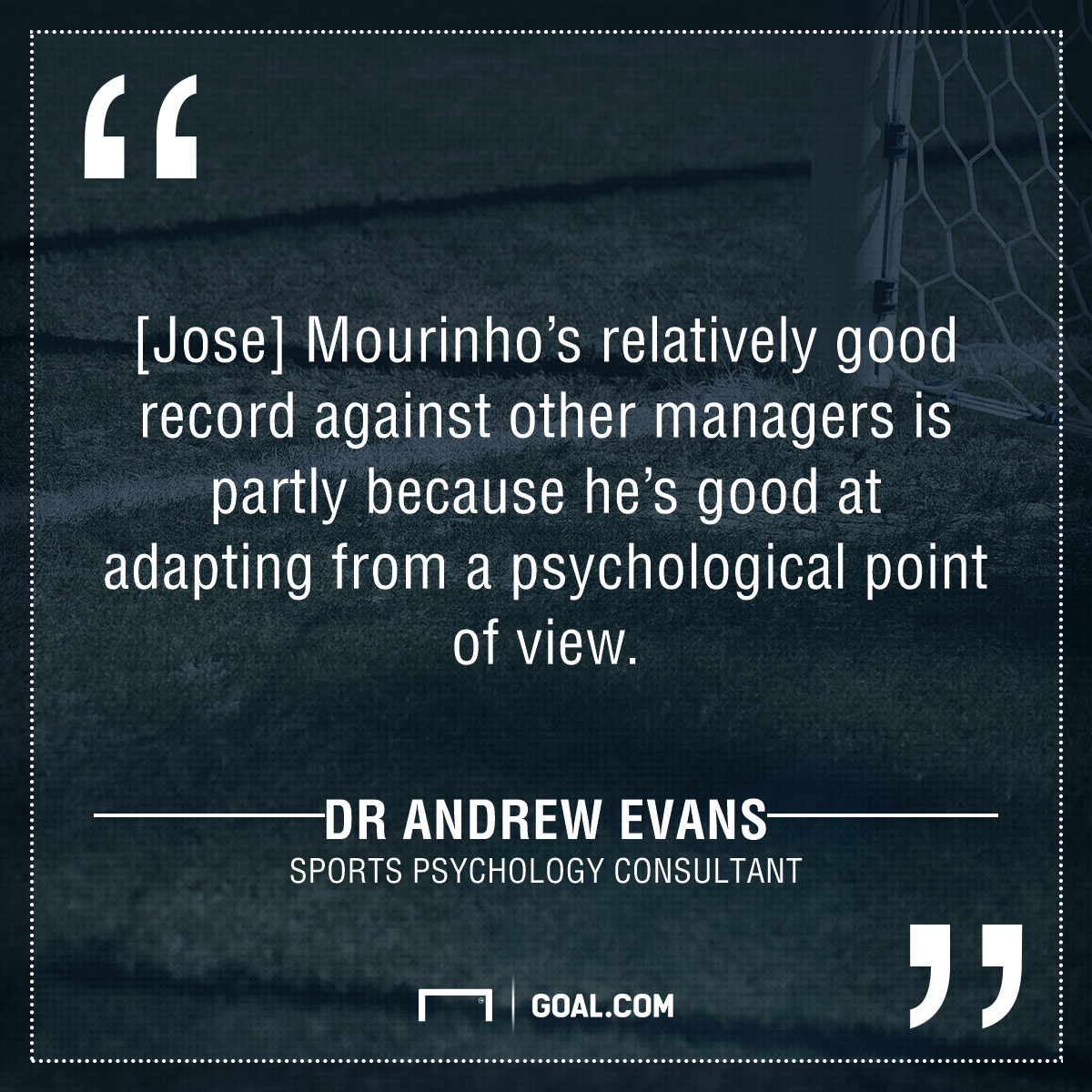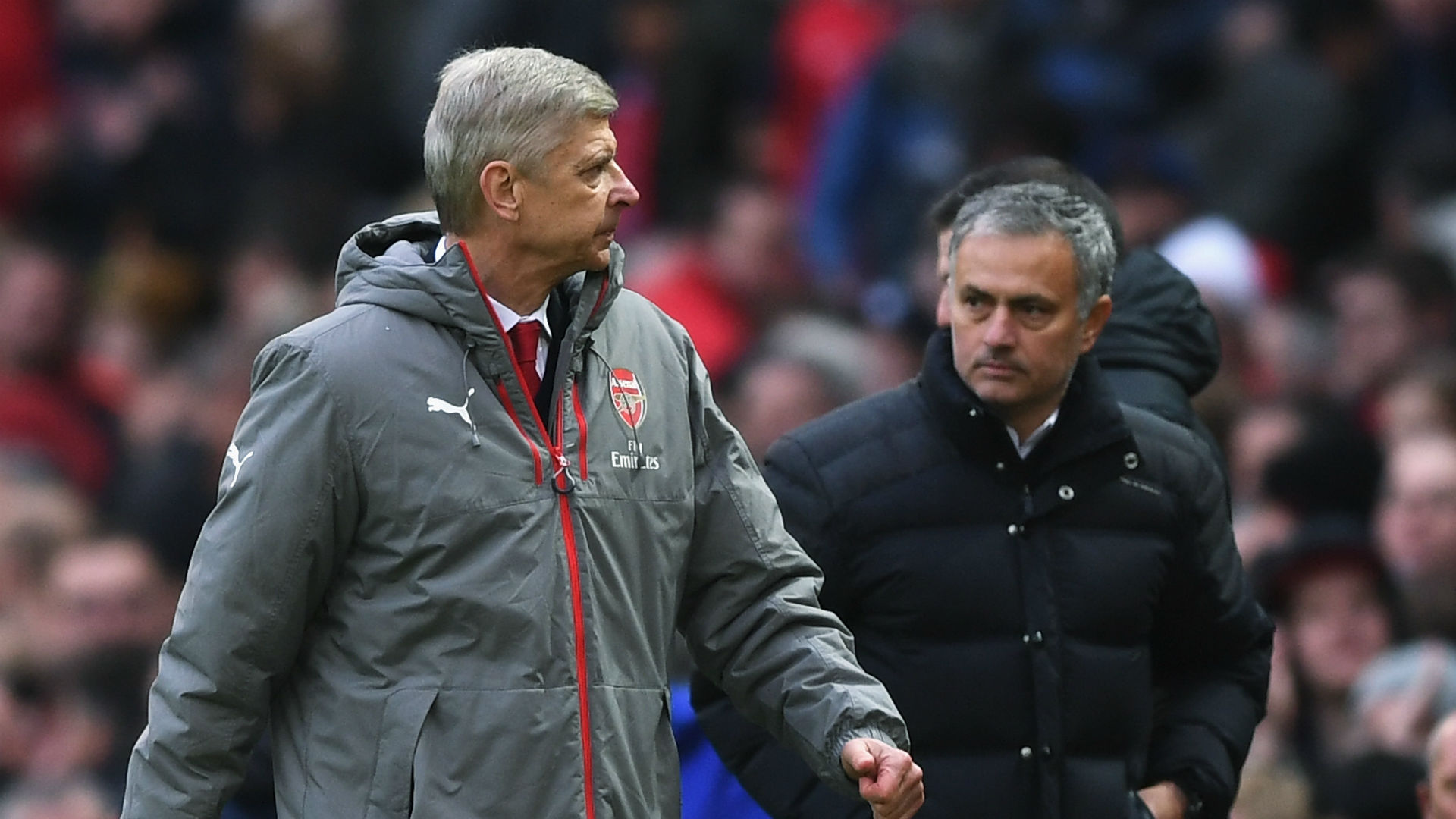Soka247 talks to a sports psychology consultant about the ingredients which appear to give the Manchester United boss the edge over many of his rivals
Arsene Wenger and Jose Mourinho lock horns once again this Sunday as Arsenal face Manchester United in a crucial Premier League match at Emirates Stadium.
The two managers have had a tumultuous relationship over the years, with perhaps the most iconic display of how much they dislike each other seen at Stamford Bridge in 2014 when Wenger pushed Mourinho and squared up to the Portuguese after reacting angrily to a challenge from Gary Cahill on Alexis Sanchez.

Wenger’s frustrations rarely boil over enough that he outwardly displays anger towards an opposition manager, but there have been a few cases over the years - Alan Pardew, Tony Pulis, Sam Allardyce and Kenny Dalgish are all examples of coaches who have rattled the Frenchman, who has no qualms in admitting that he is a “bad loser”.
When Arsenal face United on Sunday, an under-pressure Wenger faces a manager whom he has never beaten in the Premier League. His only previous win against Mourinho came in the 2015 Community Shield, with seven draws and five defeats making up an otherwise dismal domestic record.
But why is Wenger unable to beat a Mourinho team in the league? The reverse fixture at Old Trafford earlier in the season was an example of what has been all too common over the years and would have been another defeat if it wasn’t for a last-minute Olivier Giroud header.
Goal spoke to Dr Andrew Evans, sports psychology consultant who is Lecturer in Sport and Exercise Psychology at the University of Salford, Manchester, about the psychological ingredients which from the outside and appear to give Mourinho the edge over many rival managers, including Wenger.
He said: “There are so many factors which determine winning or losing in football. There are coaching-related factors, physical, tactical, nutritional factors. Psychological factors are also part of the melting pot determining winning or losing in football.
“There’s no reason from a psychological point of view to suspect that Mourinho is an unlucky manager for Wenger. That kind of statement would suggest that Wenger would never gain success no matter what hand he had - tactics or style or play.
“But I think one explanation why Mourinho is successful in bigger games generally is that he appears to demonstrate an understanding of the strengths of the opposition and the strengths of his own team, using that information to determine his tactics, philosophies and psychological approach going into such big games."


Criticisms previously levelled at Wenger by fans, ex-players and pundits include his failure to adapt tactically in the big games, although he surprised many with his decision to play three defenders over recent weeks.
The confidence among Arsenal players was, by all accounts, dented after February's disastrous 5-1 Champions League defeat to Bayern Munich and Dr Evans explains how important it is for players to have clear, achievable goals set to give them the best opportunity of succeeding on the pitch.
He added: "Self-confidence is arguably the most strong and consistent predictor of success across all sports. It’s the most significant psychological factor which influences success. The interventions I use with athletes are frequently geared towards reminding them of best performances and getting them to replicate some of those things they did in previous successes again in future events.
"In sports psychology research, a strong predictor of success in team sports is when athletes have approach goals - where they go into games with a clear focus on what they need to do to perform well and what they need to do better than the opposition. In sport, one of the mistakes which managers and players can make is have the same recipe or same fixed methods and apply them in every single circumstance. That kind of recipe won’t always be effective in certain matches against certain teams."
He added: "Self-confidence is arguably the most strong and consistent predictor of success across all sports. It’s the most significant psychological factor which influences success. The interventions I use with athletes are frequently geared towards reminding them of best performances and getting them to replicate some of those things they did in previous successes again in future events.
"In sports psychology research, a strong predictor of success in team sports is when athletes have approach goals - where they go into games with a clear focus on what they need to do to perform well and what they need to do better than the opposition. In sport, one of the mistakes which managers and players can make is have the same recipe or same fixed methods and apply them in every single circumstance. That kind of recipe won’t always be effective in certain matches against certain teams."
'Mind games' are another particular set of skills which Mourinho excels at and is something he has used to his advantage throughout his career. However, according to Evans it is more Mourinho's ability to adapt in different situations which have made him so successful throughout his career.
He said: "If you look at research on what managers say in team talks or pre-match press conferences there is evidence to suggest that the more reference you make to past performance and success the greater athlete’s confidence becomes. Past performance and success is the main source of confidence amongst athletes and coaches. So there would be a psychological benefit of reminding players that they’ve been in a particular situation before and succeeded. From a psychological point of view, a manager who vocalises such information to the media and his players increases their confidence which in turn maximises a team’s expectations and chance of success.
He said: "If you look at research on what managers say in team talks or pre-match press conferences there is evidence to suggest that the more reference you make to past performance and success the greater athlete’s confidence becomes. Past performance and success is the main source of confidence amongst athletes and coaches. So there would be a psychological benefit of reminding players that they’ve been in a particular situation before and succeeded. From a psychological point of view, a manager who vocalises such information to the media and his players increases their confidence which in turn maximises a team’s expectations and chance of success.
"Mourinho’s strength comes from his ability to adapt to his own team’s strengths and counteract the opposition strengths. An example is where he went to Anfield and ‘parked the bus’ while other examples show he deployed an attacking, aggressive style such as the reverse fixture at Old Trafford against Arsenal earlier in the season. Mourinho’s relatively good record against other managers is partly because he’s good at adapting from a psychological point of view."





